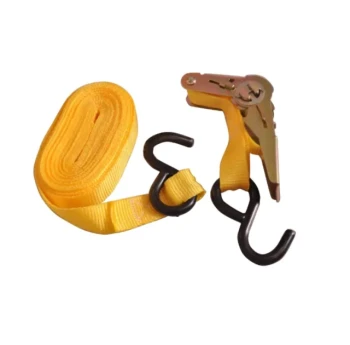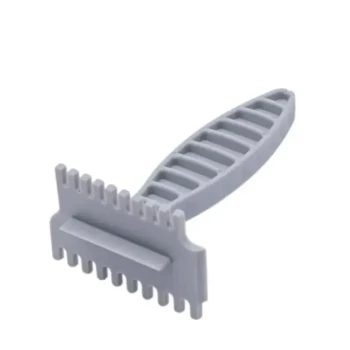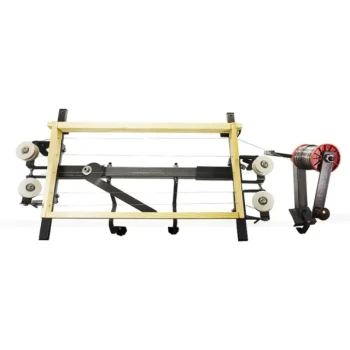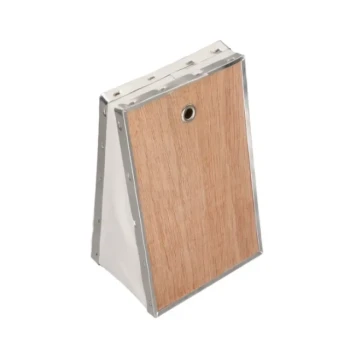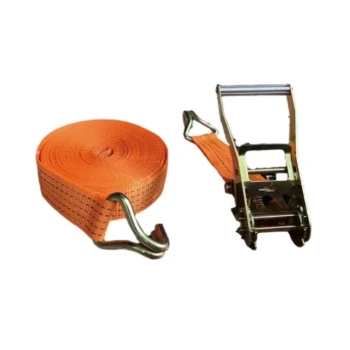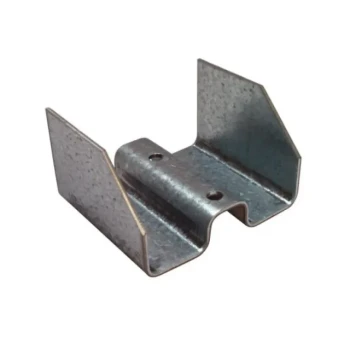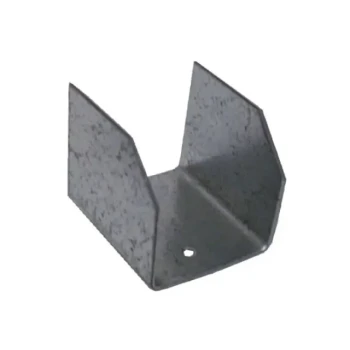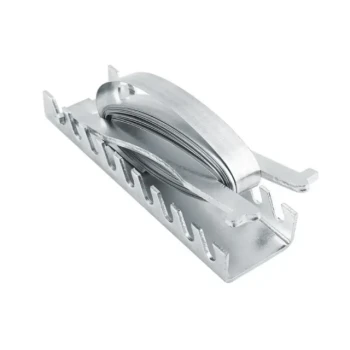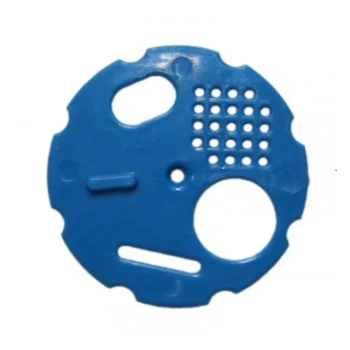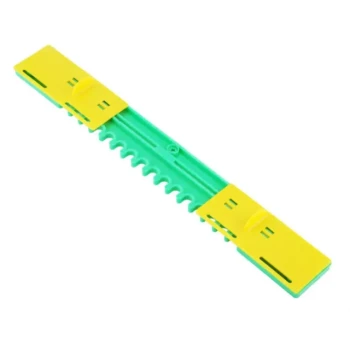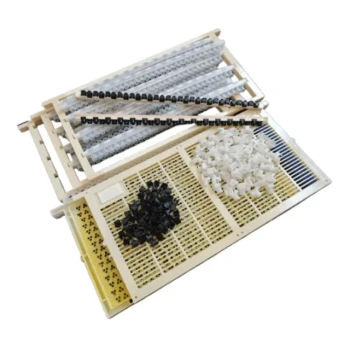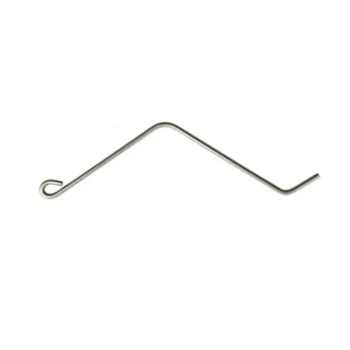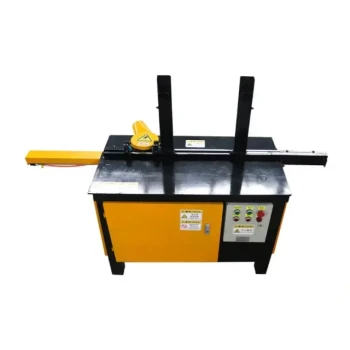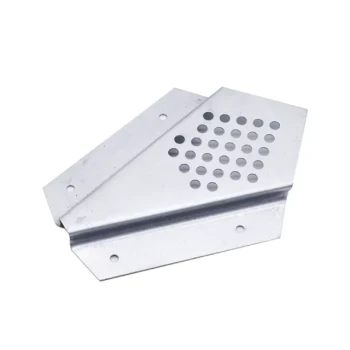At its core, regular beehive maintenance and monitoring are the most critical actions a beekeeper can take to ensure a colony's survival and productivity. These inspections allow you to prevent infestations, identify diseases, and gather crucial information that ensures the entire operation can thrive. Neglecting this practice leaves the health of your colony entirely to chance.
Viewing hive inspections not as a chore, but as an essential data-gathering process, transforms beekeeping from a reactive to a proactive endeavor. This information is what allows you to prevent catastrophic loss from pests, disease, and starvation before it's too late.
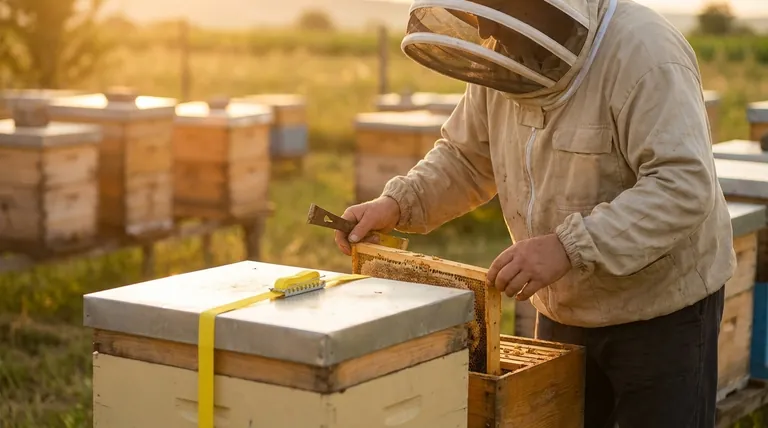
The Core Pillars of Hive Inspection
Effective hive maintenance is built on a few key areas of observation. Each inspection should be a systematic check of the colony's health, its physical home, and its potential for growth.
Health Check: The First Line of Defense
Your primary goal is to act as the colony's guardian. This means actively looking for the earliest signs of trouble.
The most significant threats are pests and diseases. Regular monitoring allows you to gauge the level of pests like the Varroa mite, a parasite that can devastate a colony if left unchecked.
Knowing the precise infestation level helps you decide when and how to treat, preventing the population from crossing a threshold that leads to colony collapse.
Structural Integrity: A Safe and Secure Home
A bee's home is its fortress. Your job is to ensure it remains sound and functional.
Inspect the physical hive boxes for any structural damage that could expose the colony to weather or predators.
Proper ventilation and the prevention of moisture buildup are also critical. A damp hive is a breeding ground for disease and can be fatal to a colony, especially during winter. This may involve cleaning the bottom board or replacing damaged frames.
Colony Status: Gauging Productivity
A healthy colony is a busy and growing one. Inspections give you a snapshot of this internal activity.
Look for the presence of a healthy, egg-laying queen and a solid brood pattern. This is the clearest indicator of a colony's vitality and future strength.
You must also check their food stores (honey and pollen). This tells you if the bees have enough resources to survive, especially heading into winter or during a nectar dearth.
The Power of Informed Decisions
Monitoring is pointless without action. The data you gather during an inspection empowers you to make management decisions that directly impact the colony's success.
From Data to Action
When you monitor Varroa mite levels, you can apply treatments that are specifically suited to the level of infestation. This targeted approach is more effective and reduces unnecessary chemical exposure for the bees.
Understanding the function of each part of the hive helps you make these decisions. Knowing what a damaged frame looks like and why it's a problem allows you to act decisively.
Preventing Catastrophic Loss
The stakes are incredibly high. An unmanaged mite infestation will not only lead to the loss of that colony but can also spread to other healthy hives in the area.
Likewise, failing to notice dwindling food stores can lead to starvation, and failing to see signs of overcrowding can lead to the colony swarming, taking half of your workforce with it.
Understanding the Trade-offs
While essential, hive inspections are not without their own risks. A successful beekeeper understands how to balance intervention with the needs of the colony.
The Risk of Over-Inspection
Every time you open a hive, you disrupt the colony's internal environment. You can chill the sensitive brood, introduce stress, and run the risk of accidentally injuring or killing the queen.
Inspections should be purposeful and efficient, not done out of simple curiosity. A calm, methodical approach minimizes disturbance.
The Cost of Neglect
The risks of over-inspection pale in comparison to the near-certain failure that comes from neglect. A colony left unmonitored is a colony left vulnerable.
Without regular checks, you will miss the critical window to intervene against mites, disease, or starvation. The choice is not whether to inspect, but how to do so wisely.
Making the Right Choice for Your Goal
Your approach to monitoring should be guided by your specific objectives as a beekeeper.
- If your primary focus is disease and pest prevention: Your key action is performing regular, scheduled mite counts and learning to spot the signs of common brood diseases.
- If your primary focus is maximizing honey production: You must monitor food stores and colony space, adding more room (supers) just before the bees need it to prevent swarming and ensure a massive workforce.
- If your primary focus is colony survival through winter: Your late-season inspections must confirm the hive is queenright, has sufficient honey stores, and has low mite loads and good ventilation.
Ultimately, consistent monitoring is the dialogue you have with your bees, allowing you to support their incredible work and ensure their long-term success.
Summary Table:
| Key Inspection Area | Primary Goal | Key Actions |
|---|---|---|
| Health Check | Pest & Disease Prevention | Gauge Varroa mite levels, spot brood diseases. |
| Structural Integrity | Provide a Secure Home | Check for damage, ensure proper ventilation. |
| Colony Status | Gauge Productivity & Growth | Confirm queen is present, check brood pattern & food stores. |
Protect Your Investment and Maximize Your Apiary's Potential
Regular, effective hive maintenance is non-negotiable for commercial success. HONESTBEE supplies the durable, reliable beekeeping supplies and equipment that commercial apiaries and distributors depend on for efficient and thorough hive inspections.
Ensure your operation is proactive, not reactive. Contact HONESTBEE today to discuss your wholesale equipment needs and let us help you build a stronger, more productive beekeeping business.
Visual Guide
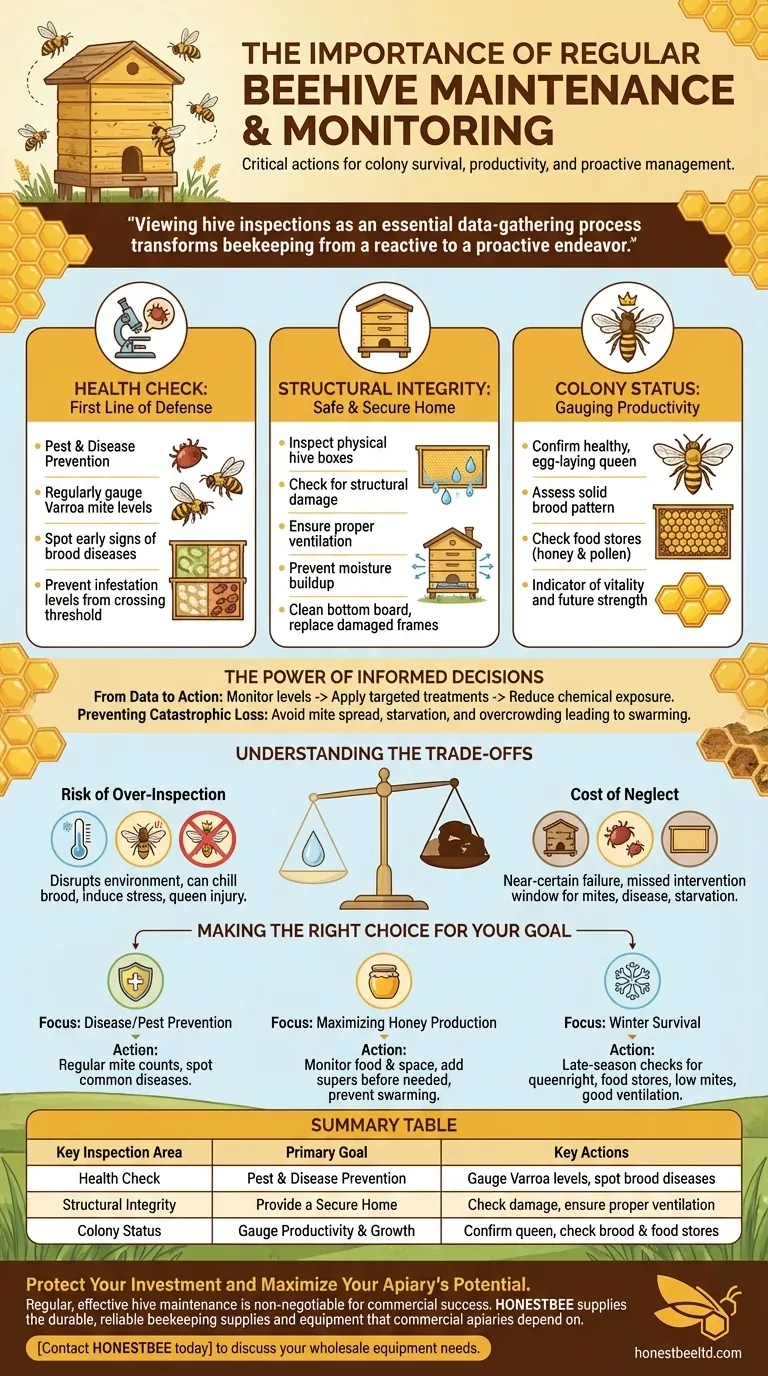
Related Products
- Professional Galvanized Hive Strap with Secure Locking Buckle for Beekeeping
- Versatile Ratchet Hive Strap with S-Hooks for Secure Fastening
- Lightweight Durable Plastic Queen Excluder Scraper for Beekeeping
- Professional Bee Frame Wiring Tool with Integrated Tensioning System by HONESTBEE
- Professional Replacement Bee Smoker Bellows for Beekeeping Equipment
People Also Ask
- What is the advantage of using cam buckle straps? Secure Your Load Fast with Simple, Safe Tensioning
- What is the proper method for installing a cam buckle strap on a beehive? Secure Your Hives for Maximum Stability
- What are the types of Emlocks available? Choose the Right Strap for Hive Security
- Why are hive straps important for beekeepers? Secure Your Hives Against Wind, Predators & Transport
- What are the two styles of hive straps? Choose the Right Strap for Your Hive Security

